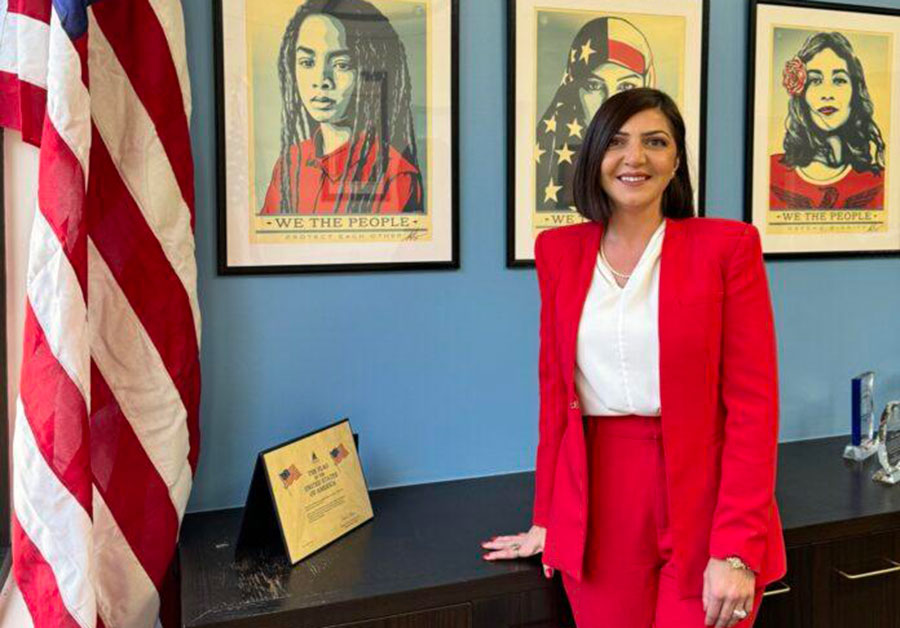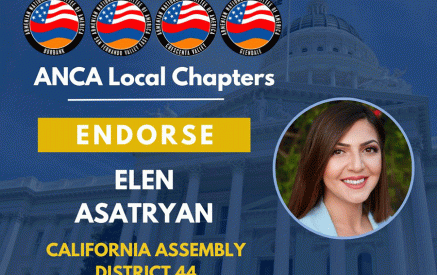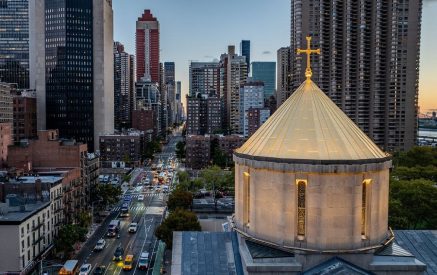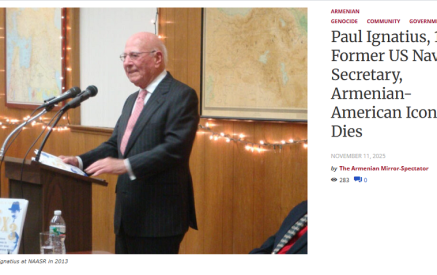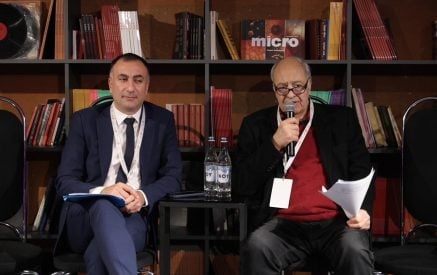A couple of months into her mayorship, Mayor Elen Asatryan remains energized by the opportunity to represent the city of Glendale and cognizant of what her leadership means as the youngest person and also the first immigrant woman to ever hold the position.
“I take that responsibility with intention,” Asatryan said. “I recognize the space that I take up on that dais and what that means for not just women and girls, but for minority women and girls.”
At the center of Asatryan’s priorities are access, representation and engagement.
Asatryan grew up in Glendale after her family immigrated to the U.S. from Armenia in 1992. She said she has seen slow strides in the city’s efforts to diversify. Recalling a time when institutions such as the City Council, the Glendale Unified School District’s Board of Education and the Glendale Police Department were overwhelmingly white, Asatryan noted that this is no longer the case, though there is still progress to be made.
Read also
Navigating the best ways to communicate with different groups in the city is top of mind for Asatryan. She plans to hold meet-and-greets with different community organizations, especially different ethnic groups, to not only allow them to get to know city staff better, but also learn what methods of communication work best for each of them.
“I want us to be really intentional on how we get the word out on not just policy changes, but also our programming,” Asatryan said. “… One of the biggest issues is that communication factor, because we have amazing programs, but the average person doesn’t know about them. So how do you make it more palatable for the average citizen to be able to get those resources?”
The very reason Asatryan ran for City Council was because she noticed a lack of community knowledge about COVID-19 assistance programs offered by the city and state and at the federal level. Whether this was due to a language barrier or general lack of outreach, Asatryan was inspired to enact change in the communication realm across the board.
A significant consideration for Asatryan when reviewing policies is whether a policy will truly reach its intended audience.
“If we create a system that works for working-class families, those that that have language barriers and those that don’t know how to navigate our system, then we’ve actually created a system that works for everyone,” Asatryan said.
In addition to finding the proper routes to disseminate information, Asatryan also highlighted the importance of receiving feedback from the community. Although she is grateful for the level of public participation seen in City Council meetings, she also finds that those meetings are not everyone’s go-to method for communicating.
“The average person doesn’t have six or nine hours to sit there and listen to meetings,” she said. “Especially for working-class and immigrant communities with language barriers, it can be a very intimidating process to come up and speak on that podium.”
Because of this, Asatryan said a very important part of her job is having “an ear to the ground in different communities.” Through that, Asatryan feels she can bring varied perspectives to council discussions from groups that may not be able to participate in meetings.
Another top issue for Asatryan is working toward spearheading more affordable housing options. In addition to the city’s mandated affordable housing obligations, Asatryan wants housing to be affordable for all residents.
“I’m from a different generation where I cannot afford to purchase a home in the city that I serve as the mayor in,” Asatryan said, adding that she is the only sitting councilmember who does not own a single-family home.
With the increased cost of living and housing, Asatryan finds those making between $80,000 and $120,000 annually are an “extremely vulnerable sector,” as they do not typically qualify for any government assistance and are often living paycheck to paycheck.
“It could be one flat tire or one visit to the doctor that leads them to fall into homelessness. It starts creating that [ripple effect] and that is the population that actually doesn’t get any assistance,” she said. “They don’t get assistance with education, with health care, with food. There’s nothing for them.”
To that end, Asatryan would like to see the city invest more money in incentive programs to create more realistic pathways to homeownership as well as programs to strengthen small businesses and keep people on their feet.
“When you make economic development a priority, you not only uplift your small businesses, which are the lifeline of your local economy, and uplift your families, but you’re also helping generate revenues for the other things that you need to keep up the quality of life in your city,” Asatryan said.
A small-business owner herself, Asatryan opened her own public affairs and political consulting firm, The Stark Group, in 2017.
Asatryan’s selection as mayor has brought with it a degree of controversy. According to the city’s ordinance that guides mayoral selection, Councilman Ara Najarian was next in line to be mayor this year. However, Councilmembers Ardy Kassakhian and Dan Brotman asserted their belief that having Najarian serve as mayor would not be in the best interest of the city, thus invoking a clause to overrule Najarian’s selection.
During the April 2 meeting in which Asatryan was chosen to be mayor in a 3-2 vote, the decision received mixed reactions from the audience. Since then, some people have continued to taunt and criticize Asatryan in her new role; however, she said she doesn’t let it get to her.
Although Asatryan welcomes any constructive criticism and feedback when it comes to policy or anything related to the city’s operation, she stressed the key distinction between differences of opinion and personal attacks, emphasizing respect.
“This is everyone’s City Hall, and [we must] create an environment where anybody, no matter what their opinion is, can come and comfortably voice it without feeling that they have to restrain themselves,” she said. “And that comes from a place of accepting that there has to be mutual respect. You don’t have to agree, but there has to be respect.”
Especially on the heels of a general cultural shift toward increased polarization, Asatryan wants to create opportunities for different groups to connect with each other and with local leaders. One idea is creating a quarterly “Night Out With City Hall,” where community members can gather to foster communication and bonding.
“When you create these informal settings, people’s guards come down and people actually get to know each other on a human level,” she said. “Sharing food, sharing stories and getting to know each other on a different level all help people communicate better, which helps alleviate a lot of the divides that you see around issues.
“If we talked more with each other and we listened more, we would find that we have a lot more in common than sometimes, especially these days, people feel that they do,” she added.
As someone who got involved in politics from a young age, Asatryan deeply values mentorship. Recalling volunteering for Rafi Manoukian’s 1999 City Council campaign as a 15-year-old high school student, Asatryan said that experience opened her eyes to the difference one can make through canvassing and connecting with the community.
Identifying Manoukian as a top mentor for her, Asatryan said he taught her that “you can be both a courageous and empathetic leader at the same time, but also put your foot down and stand on your own moral ground.”
Energized by this volunteer experience, in which she, Manoukian and the rest of the campaign team registered thousands of new voters in Glendale, Asatryan continued pursuing politics, studying political science at UCLA and going on serve as the executive director for both the Armenian National Committee of America, Glendale, and the ANCA, Western Region.
Emphasizing the importance of exposing young people to opportunities based on civic engagement, Asatryan noted that in her roles at the ANCA, she prioritized working with young female interns.
“Opening doors for other women and girls is very near and dear to my heart,” Asatryan said. “… I take immense pride in that, and I would definitely say one of my biggest joys in life is watching especially young women bloom and grow and be their authentic selves, no matter what space they take up.”
As Glendale’s sixth female mayor and the first Armenian American mayor, Asatryan said she has encountered many parents approaching her saying how excited they are to have their daughters see a woman mayor in power.
“Those are the moments where I draw inspiration from how we’re creating a more equitable world,” she said.
By Kennedy Zak
First published in the June 15 print issue of the Glendale News-Press.




















































